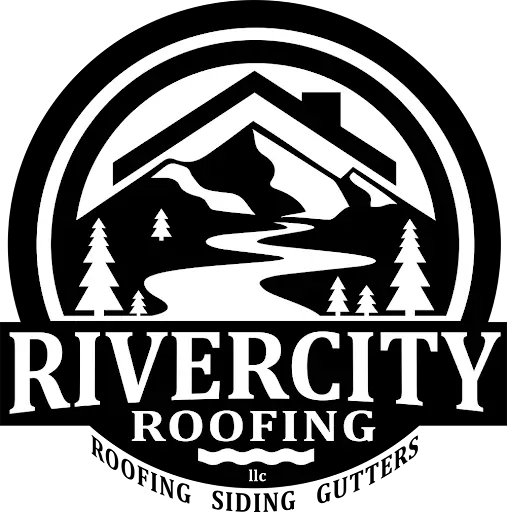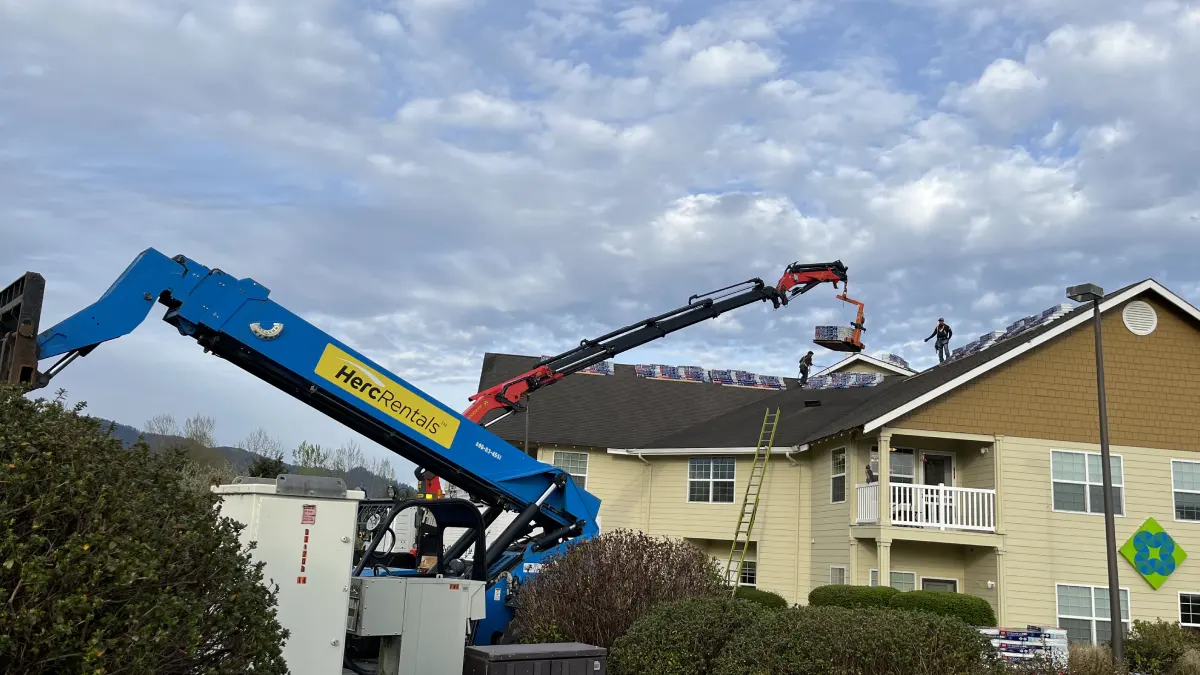Every decision counts, especially when it comes to your business. Even choosing the right roof for your business is an important and significant decision. The roof is an essential aspect of safeguarding the assets of your business, maintaining temperature, and improving the outlook of the structure as a whole. Given the numerous types of commercial roofing available, making an informed choice is crucial. I
This guide seeks to help you address the major factors to consider when choosing the roof for your business and how to choose the right roofing company for your business needs.
Understanding the Cost of Commercial Roofing
The expenditure on roofing for commercial premises is highly dependent on factors such as means and materials, the extensiveness of the building, the region, and the complexity of the installation, among others. It is understandable that you may want to consider the cheapest price option. However, it would be wise to be as economical as possible and, at the same time, ensure that you also consider the quality and durability of the materials used for your roof.
Some essential factors that impact the cost of roofing include:
Costs of Materials: Certain roofing systems, such as metallic ones, are relatively costly initially but are more durable and easy to maintain in the long run. Other materials may be cheaper, such as asphalt shingles, although they are cheaper and may need replacement more often.
Costs of Labour: The sophisticated nature of the roof to be installed and the skill level of the roofers also play a part in the cost of the labor. Hiring the services of a professional roofing company can be more expensive, but it also assures you of good quality work with fewer problems in the future.
Roof Area and Slope: Bigger roofs will always mean more incurred costs because more materials and labor will be needed. In the same way, complex roof designs that have steep slopes will also attract increased labor costs because of the technicality involved in their installation.
Region: Local laws, building regulations, and weather conditions are all factors that affect the cost of commercial roofing.
While it is true that putting up the right roofing system may be more expensive in the beginning, the business will eventually benefit from such investment by lowering costs associated with repairs or replacements, enhancing savings on utility bills while also extending the lifespan of the roof.
Free Roof Inspections. Fast. Reliable.
Is your roof ready to weather the storm? Dont risk property damage. Our free roof inspections provide expert analysis to identify potential issues before they become costly problems.
Commercial Roofing Options: A Comparison
Selecting the proper type of commercial roofing options for your business roof is one of the most critical decisions that have to be made. All roofing options have their advantages and disadvantages; therefore, each business and its building needs to be analyzed in terms of climate, building design, etc. Here’s a look at some of the most popular commercial roofing materials:
Built-Up Roofing (BUR)
BUR, commonly called built-up roofing, is created by layers of bitumen (asphalt) alternated with ply sheets and a layer of gravel or aggregate on a topmost layer. BUR is long-lasting, requires limited maintenance, and offers supreme waterproofing results.
Pros: Stable and long-lasting; resistant to different weather conditions; suitable for flat roofs.
Cons: It is considered a heavyweight, needs significantly robust structures, and the implementation price might be high.
Modified Bitumen
The BUR has a modification known as the modified bitumen that uses polymer-modified asphalt, increasing its flexibility. It can be installed as layers and is most often installed either through heat-welding or via the use of cold adhesives.
Pros: Versatile, wear-resistant, and capable of holding up to even the worst temperature variations.
Cons: Need to be fitted by a professional and tend to get punctures.
Single Ply Membrane Roofing
Some of the single-ply membranes include TPO – Thermoplastic polyolefin, EPDM – Ethylene propylene diene terpolymer, and PVC – Polyvinyl chloride. These are characterized by lightness in density and flexibility and are normally installed in a single layer.
Pros: Thin, light, simple to install, resistant to UV rays, and energy-efficient.
Cons: Prone to punctures and also requires proper maintenance to prevent leaks.
Metal Roofing
All types of metals can be used on the roof, such as aluminum, steel, and copper. They stand out as being tough and long-lasting, and most importantly, they can resist fire.
Pros: It is long-lasting, easy to maintain, more efficient in terms of energy use, and fully recyclable.
Cons: Higher initial costs and may be rather noisy at the time of heavy rainfall
Green Roofing
Currently, green roofs, also known as vegetative roofs, are common among companies as a way of going green. These roofs consist of a layer of soil and plants for the purposes of insulating the building and controlling stormwater runoff.
Pros: Environmental friendly, increases energy efficiency, improves aesthetic value of the building.
Cons: It needs more maintenance, and the installation costs are very high.
SPF Roofing
It stands for spray polyurethane foam roofing; SPF is a liquid foam that hardens into a solid, seamless layer, providing excellent insulation and waterproofing. This type is especially suitable for low roofs or those roofs with minimal inclination.
Pros: Sleek, energy-saving, lightweight, and seamless in design.
Cons: It should be installed by a professional and well-maintained to prevent damage.
Best Roofing Materials for Durability and Longevity
When selecting the roof material, it is always recommended that durability and the duration of the material will last act as part of your filter. This means that while some may be more costly at the initial order, they may not necessitate as many replacements and reparations over time. Here are some of the best roofing materials in terms of durability:
Metal Roofing: Metal roofs, if well maintained, can be used for a period of 50 years or even more. They are fire, wind, and impact resistant and, therefore, ideal for use in areas that experience severe weather conditions.
Built-Up Roofing (BUR): BUR is a long-lasting system that can last up to 30 years, requiring virtually no maintenance, and is typically used on flat or low-slope roofs.
TPO and EPDM Roofing: Both TPO and EPDM membranes have similar lifespans, projected to be 20 to 30 years, with the correct installation and maintenance. They possess high UV and weather protection functionality.
Modified Bitumen: This material is very strong yet versatile, with a life expectancy of 20 to 30 years.
Energy-Efficient Roofs: Saving Money While Protecting the Environment
Energy-efficient roofs not only minimize the impact on the environment but also bring significant savings to costs associated with energy bills for your business. Cool or reflective roofing materials, such as TPO or PVC membranes depicted below, reflect more sun and absorb minimal heat, meaning less use of air conditioning in summer.
Some of the best energy-efficient roofing options include:
Cool Roofs: These are intended to reflect more sunlight and trap less heat. As mentioned earlier, some of the typical ones include reflective coatings, white TPOs, and light-colored metal roofs.
Green Roofs: Vegetative roofs enable natural insulations, low heat amassment, and help in minimizing the issue of urban heat islands.
SPF Roofing: Spray polyurethane foam not only serves as an effective thermal barrier but can lower a building’s heating and cooling expenses by reducing the loss of heat through the roof.
To understand which type of roof to pick with good energy efficiency, one has to take into consideration the climate of the location. Reflective roofs are suitable for hot climates and help lower cooling costs; insulation-intensive solutions such as SPF or green roofs may reduce the amount of money spent on heating costs.
Professional Roofing Services: Why Expertise Matters
Commercial roofing projects are challenging and need the expertise of professional and experienced contractors. If you are considering installing a new roof for your business or just fixing an already existing one, then the job must be done by professional roofing services. A professional roofing contractor has professionals, superior quality and better equipment, and safety precaution measures, which are so crucial for a roofing project.
Benefits of hiring professional roofing services:
Expertise: Professional roofing contractors possess the right skills and experience to lay down all sorts of roofing structures properly.
Safety: Professional roofers are aware of safety standards and use the correct tools and equipment to minimize the chances of experiencing an accident at the site.
Warranty: Every reliable contractor should provide you with a warranty of the job done so that you feel secure knowing that your money is well spent.
Quality Materials: They are in a better position to advise and ensure you get the best quality materials for your work.
Roofing Contractor Selection: Key Considerations
The selection of a roofing contractor is as crucial as choosing the material you want for roofing. By hiring a qualified contractor, you can be sure that your roof is installed in the right manner, is well within the code, and will protect your business for many years.
Here are some key factors to consider when selecting a roofing contractor:
Experience and Reputation
Seek out commercial roofers who have prior experience in commercial roofing. Ensure that you request reviews and testimonies so as to evaluate the standing of the contractor in the market. The contractor having dealt with your kind of roofing in the past is an added benefit.
Licensing and Insurance
It is important that the contractor is properly licensed and has the necessary insurance coverage. Insurance generally covers employees and your company from many risks inherent in roofing, especially in the event that there are accidents throughout the installation period.
Warranty and Guarantees
There is always a warranty from the contractors on the material used and on any work done by the contractors. Make sure to get more information regarding these warranty options and what they comprise.
Local Knowledge
Local contractors understand the local climatic conditions and legal requirements with respect to roofing, regarding the type of material to be used and the methods of putting them in place. It is also easier to get technical support and after-installation service from a local contractor if one is needed.
Written Estimates
Never accept an estimate from a roofing company without demanding for a written breakdown of the estimated price. These must include the expenses incurred in procuring the raw material, wages paid to workers, and other charges. Avoid underestimates or overcharges by getting different quotes and judging the validity of each bid and quote by comparing them.
Professional Roofing Contractors: Finding the Right Fit
While searching for professional roofing contractors needed for your project, it is important to consider a contractor who would suit your needs. Here’s how to find the right contractor:
Ask for Referrals: Another way is getting recommendations from other businesses or building owners that could recommend reliable contractors.
Check Certifications: Most companies offer certification programs for roofing contractors. It also establishes that certified contractors have additional training, and they usually meet even higher standards.
Visit Past Projects: If possible, access other commercial buildings where the contractor has implemented roofs. This enables one to gauge the standard of their work independently without misleading influences from other parties.
Inquire About Maintenance Plans: Repairs and other maintenance services are also provided by some contractors after construction in order to regularly maintain the durability of the roof. Inquire if there is a price difference for specific maintenance plans.
Conclusion
Picking a suitable roof for your commercial building is one of the most important decisions you can make. The prices, type of roof, energy efficiency, and roofers you hire all play an important role in making that decision. If you know the types of commercial roofs, the evaluation of the price of commercial roofs, and hire roof services, you will be guaranteed your business will be protected for many years.
Whether you need to find the most durable materials for the roof or want to install an energy-efficient, finding a suitable and competent contractor will get you the results you want. Your commercial roof is an investment in the future of your business – make sure it is an investment that will pay off in the long run and be worry-free.
When you need to take that next step to move forward with your business’s commercial roofing project, contact River City Roofing. Do not let your roof be a gamble—contact us to ensure your business is well-protected for years to come. Call us today for a consultation and for a free estimate.
River City Roofing is equipped to fulfill a wide range of roofing services, from new installations, repairs, and upgrades to more energy-efficient products or systems. We at River City Roofing guide you on the right path, selecting the right products for your roof and getting quality services from our experienced professionals. Invest in your business future by making the right roofing decision. Contact us today!



